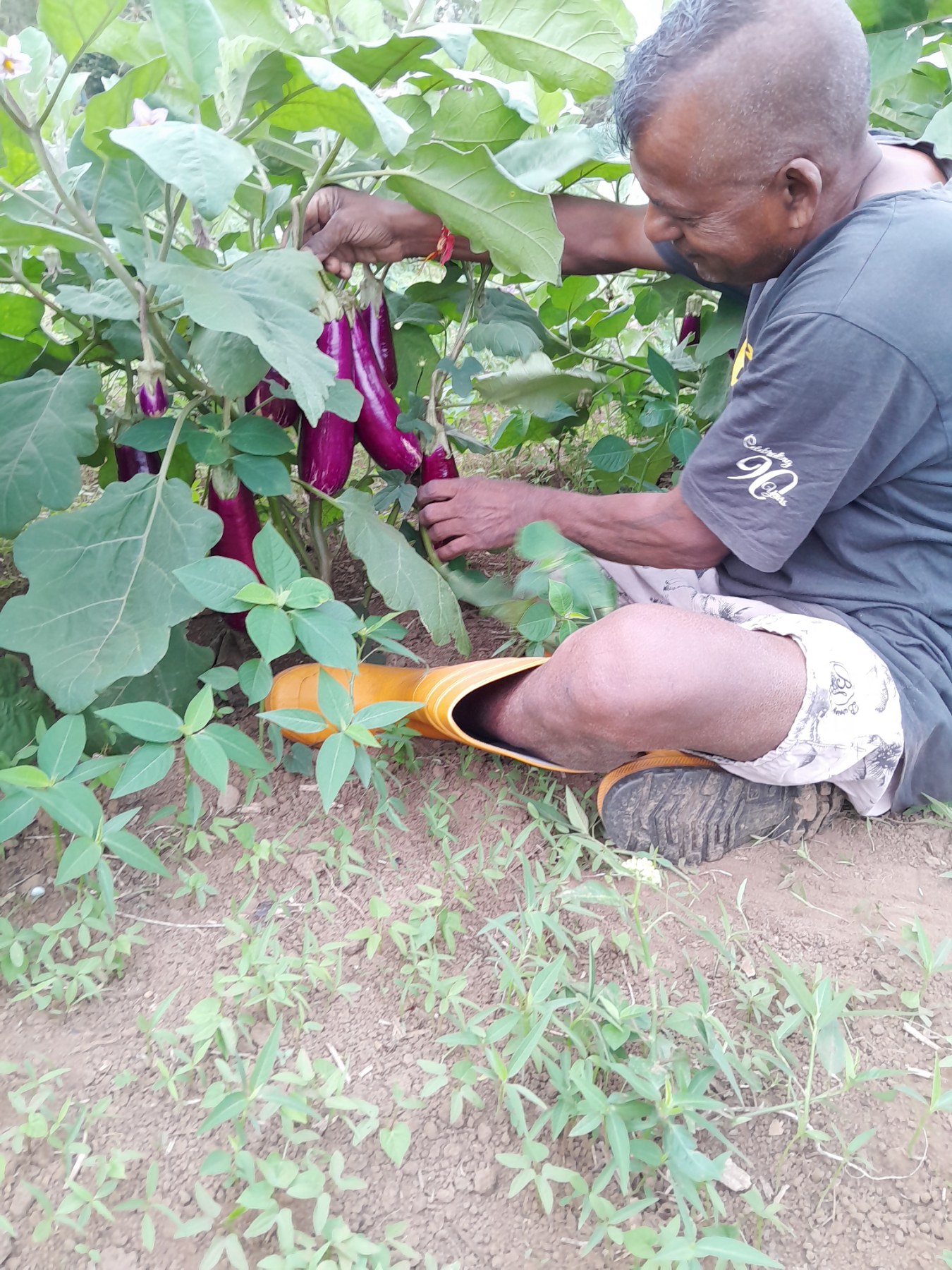KOROTARI FARMER ENCOURAGES SUSTAINABLE FARMING PRACTICES

Sustainable land management (SLM) is an issue that countries across the world are trying to grapple with as we face the onslaught of climate change and environmental degradation.
SLM practices are essential for ensuring the health of our ecosystems, preserving biodiversity, and maintaining the livelihoods of communities that depend on the land for their survival. As climate change intensifies, land degradation and desertification are becoming pressing concerns that threaten food security and access to clean water.
Globally, various stakeholders—governments, NGOs, and local communities—are working collaboratively to develop and implement SLM strategies that promote resilience and adaptability. These strategies include techniques such as agroforestry, crop rotation, conservation tillage, and the restoration of degraded lands. By integrating these practices, farmers can improve soil health, increase agricultural productivity, and enhance their ability to withstand extreme weather events brought on by climate change.
Education and capacity-building initiatives are also crucial in promoting sustainable practices. Farmers need access to information on climate-smart agriculture, technologies that can help them manage their resources more effectively, and financial support to transition to more sustainable methods.
Moreover, fostering local knowledge and involving communities in decision-making processes ensures that land management strategies are culturally appropriate and context-specific.
Mr. Satish Chand is a farmer
in Korotari, Labasa and the current Advisory Councillor for Mid Korotari.
He is actively involved with the Australian Centre for International Agricultural Research (ACIAR) funded Land Care Project which has 3 sites in Fiji namely in Sigatoka, the Labasa Catchment and Taveuni.
He returned late last year from Australia where he joined other farmers and stakeholders on an organised excursion to gain better insight and knowledge on sustainable land management farming practices.
With knowledge gained over the years, Mr. Chand has never looked back throughout his farming venture and in what started as a hobby, he has certainly grown in leaps and bounds.
Through sustainable farming practices,
he has managed to secure additional land for farming.
A sugar-cane and vegetable farmer, Mr. Chand says that listening to the advice of the Land Resources and
Planning Division of the Ministry of Agriculture and Waterways was indeed a turning point for him.
“Korotari is usually synonymous for flooding every time there is heavy rain and I have been losing land in the past years due to unsustainable land use. Through the advice and continuous trainings that I attended, I managed to salvage my land and also gain additional land from the river banks due to smart practices,” he smiled.
“Implementing the techniques I learned has made a significant difference in my farming practices. By adopting sustainable land management strategies, I have not only improved the health of my soil but also enhanced my crop yields. The community workshops organized by the Ministry of Agriculture and Waterways have been invaluable; they provided practical knowledge that I could apply directly to my farming operations.”
He expressed gratitude for the support from both the ministry and fellow farmers, emphasizing the importance of sharing experiences and knowledge within the community.
“When we work together and share what we learn, we can all benefit. I’m now able to grow a variety of crops and have seen an increase in both size and quality,” he explained.
“This transformation has also positively impacted my family's livelihood; I can now provide more for them and even save some for future investments. Sustainable practices not only help us withstand the floods but also ensure we leave a healthier environment for the next generation,” he added.
Through resilience, education, and collaboration, farmers like him are forging a path towards a more sustainable and prosperous agricultural future.
Mr. Chand along with other farmers in his vicinity have formed a cluster where they are able to learn from each other and use best farming practices.
He adds that nothing beats farming for a living and is now proudly supplying his vegetables to Extra Supermarket in Labasa.
“I hope that my story will be able to inspire landowning units especially youths to utilise the land sustainably. I am a proud farmer and am happy to be actively involved with other farmers in my area. We are all working towards achieving our family goals and of course supporting the agricultural sector in Fiji,” he smiled.
ENDS
